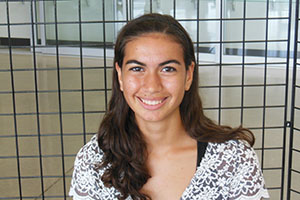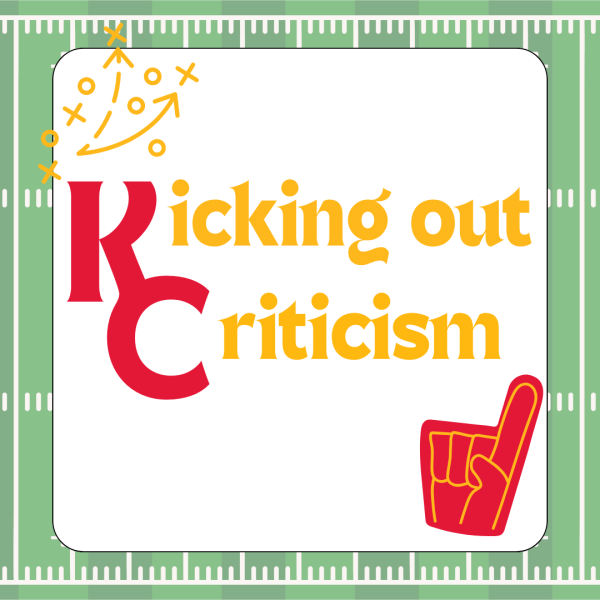Why using college to measure success hurts students preparing for the future

Sophomore Mikhale Johnson stares out the classroom window as his teacher drones on. With the exception of Spanish, every class looks the same — study for this test, take these notes, all for the purpose of getting into and doing well in college. But Johnson, who has known he wants to go into a wakeboarding profession since he was nine, has no plans of staying in school after high school, and so, for six of the seven classes a day, he daydreams about wakeboarding instead.
“If you don’t go to college, it’s like the school prepared you for nothing,” Johnson said. “It just gave you pointless skills on how to take notes really well and learn about stuff that I don’t really care about a lot …When I want to do something, I’ll do it well, but when I’m like, ‘You have to do this because you’re getting a grade,’ I just don’t really want to care that much.”
Last year, 72 percent of the 253 Southwest graduates attended four-year universities and 17 percent attended two-year schools. For this reason, part of preparing students for the future usually means helping them get accepted into college. Unfortunately, college preparation is overemphasized to the point that every aspect of high school is treated as merely a stepping stone for getting into college. In order to prepare students for life after high school, the educational community needs to stop using college to define success.
The school does offer some resources that would help all students, regardless of their future plans, prepare for life after high school, such as classes related to money management. However, many students don’t take advantage of them because they are more concerned about college admissions. Junior Swetha Jasti said if she wasn’t planning on going to college she would take accounting or personal finance, but since she has to focus on getting accepted, she doesn’t have room in her schedule.
Furthermore, the material taught in all classes, which should prepare students for the real world, is viewed only as a means to an end. Since admissions decisions are viewed as the main goal of high school, students are much less concerned with what they are learning than with the grades colleges will see on paper.
“In general, as far as the courses, I think it would be more important to focus on the learning [if I weren’t going to college], just because I would know that I wouldn’t get any more after this — I wouldn’t have any more education,” Jasti said. “I would try to focus more on making sure I learned the information now and learned it well, because I know I won’t have another chance to review it when I’m older.”
Instead, students train themselves to figure out the easiest formula for making an “A” rather than the best way to learn and retain information.
“It kind of sounds bad, but I would do whatever it takes to get a good grade in a class,” Jasti said. “I think personally, for me, I usually try to go through and learn things, but sometimes when you’ve missed a class period or you just have a lot of class work that’s hard to make up, it’s just less time-consuming to take the easy way out and kind of learn for each test and not overall gradually.”
While high school classes teach useful information that simply isn’t being absorbed because of the focus on college, standardized testing, which serves little purpose in preparing students for the future, is overly exaggerated. Students have received shirts that say “I am an outlier” and “#beatfinland,” the faces of high test scorers are hung in the hallway and the #beatfinald initiative is listed on the Blue Valley website as being “what every child deserves.”
“Standardized testing such as the PSAT, ACT [and] SAT are used to help students fulfill their post-secondary goals,” Executive Director of Curriculum and Instruction Tonya Merrigan said. “Standardized tests also allows the district important programmatic feedback on how we as a system are doing.”
But after the district receives feedback and students are accepted at colleges, standardized testing offers virtually nothing to students as they continue with their lives. The stress on testing perpetuates the false idea that college admissions are the end goal, and it can leaving students feeling like they’re less capable after they graduate.
“The danger is the overemphasis on a numerical scoring of people and the interpretation of what that means, because it can undermine a person’s confidence in themselves, especially in a school like ours where you have brilliant — literally brilliant — people,” counselor Kevin Halfmann said. “And so somebody who’s really bright might feel like ‘no, I’m not, I’m not very capable, because I have a 3.7 GPA and a 26 on the ACT — what chance do I have?’ … The belief that it’s true, the self-fulfilling prophecy, can undermine some people’s ability to succeed.”
Halfmann believes that a person’s confidence is more important that his or her skills, because people who are competent but unconfident “end up doing less than [they] could and serve humanity less than [they’re] capable.” While test scores can break down confidence, so can the college admissions process as a whole. If both the only purpose of going through high school and the only measure of a person’s success is through college, then students who don’t reach their college goal can graduate feeling defeated before they’ve started.
Alumnus Meg Huwe, a junior at the University of Kansas, was set on attending Emory University her senior year of high school. KU was too close to home, and to her, going there would feel like “all of the hard work I put into high school wouldn’t pay off since I was just going somewhere to school where I could’ve been accepted for not working as hard or trying to get good SAT/ACT scores.”
“It was pride,” Huwe said. “It wasn’t even necessarily what the school had to offer as much as it was the percentage of the students that they accepted.”
Blue Valley prepared Huwe to get the grades and test scores she needed to be accepted at her dream school. But despite getting accepted to Emory as part of their scholars program, Huwe ended up at KU because it was less expensive. What she wasn’t prepared for was the next several months of feeling like she was settling. It wasn’t until she arrived on campus and started school that she finally began to feel differently.
“I realized I was grateful to be closer to home after all, and it’s cheesy, but college can be as close or far as you want it to be,” Huwe said. “I realized a lot of the people who were at KU were also very similar to me in their very motivated, driven ways, and I’ve found my own opportunities that I thought were only available at those smaller, more selective schools.”
While Huwe found her way eventually, her story illustrates that with the way the system works now, college can determine whether a student’s entire high school experience feels worthwhile or worthless. Parents, teachers and students alike need to embrace the idea that getting into college is not the purpose of high school or the definition of success.
After high school, Johnson hopes to become a professional wakeboarder or to coach wakeboarding. Even though he knows wakeboarding can only last for so long and that he’ll need to change paths eventually, he’s confident that he will be capable of figuring it out as he goes along.
“Success is just doing something that makes me happy — doing what I want to do and having a lot of fun,” Johnson said. “If I’m going to get a job, I want to not be ‘ugh, I hate this job,’ every day. Even if I’m not making as much money as that job I hate, it’s something I like. I don’t want to waste my life doing stuff that I don’t like so 20 percent of the time I can do something I do like; I want to do something I like all the time.”

2014 marks Ananda Bhatia's third year in newspaper and first year as editor-in-chief. She is incredibly excited to work with such a talented and hard-working...






